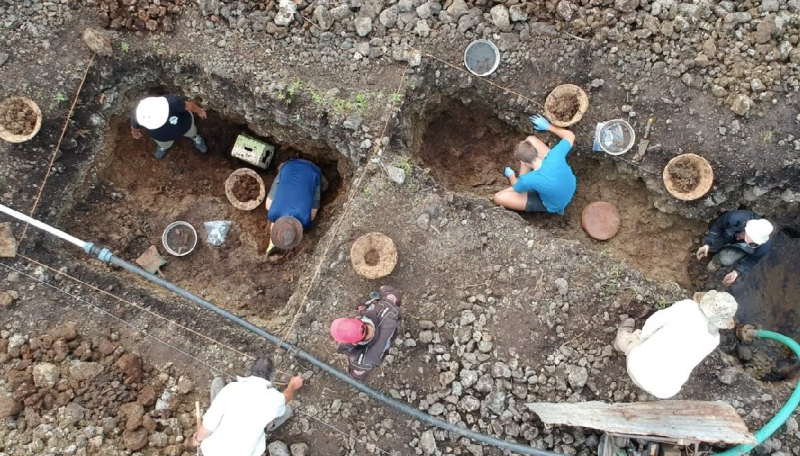12,000-year-old swamp brimming with bones reveals the ecosystem of the dodo

An 1832 description of a swamp said that that it was so full of extinct animal bones that you only had to stick your hand in the water to retrieve them. Inspired by this a group of international researchers, including the Natural History Museum's Dr. Julian Hume, went in search of it.
Remarkably the team succeeded and in 2015 the swamp was re-discovered near Mare la Chaux in Mauritius. Now, a collaboration between the National Heritage Foundation and landowner Constance la Gaieté Co Ltd. has been set up resulting in the first excavation at the site.
The area has already lived up to its reputation and yielded many bones belonging to extinct Mauritian animals. Incredibly the team have found a huge diversity of species represented in the fossil record and bones at a density of around 600 per cubic metre, much higher than the other known fossil localities on Mauritius.
Dr. Hume says, "This is one of the most exciting fossil excavations I have worked on. We are literally peeling back the history of Mauritius layer by layer. The sheer volume of remains, including extinct giant tortoises, giant skinks and Dodos, a culturally significant bird to Mauritius and global icon of extinction, we have found has been incredible."
Dr. Delphine Angst, a paleontologist specializing in fossil birds from the University of Bristol, added, "This is very exciting because for the first time we have dodo bones that are well-dated and associated through time with other animals and plants."
The additional discovery of fossil plant seeds and pollen will allow the team to reconstruct a pre-human Mauritius by building up a picture of the forests in which these animals once lived. The material has been dated at 12,000 years old making it the oldest fossil site in the Western Indian Ocean, apart from Madagascar and Aldabra. It is also the first inland, lowland fossil site in north Mauritius.
Dr. Hume continues, "The amount we have and can learn from this one site is unprecedented. Over the coming years I am sure many scientific discoveries will emerge from the soil here helping us to better understand the ecology of Mauritius' past and so better help us protect its future."
The team plan to excavate the site for many years to come and hope to provide information that will assist in the assessment of the impact of climate change and cyclone activity to the island nation.
Provided by Natural History Museum



















